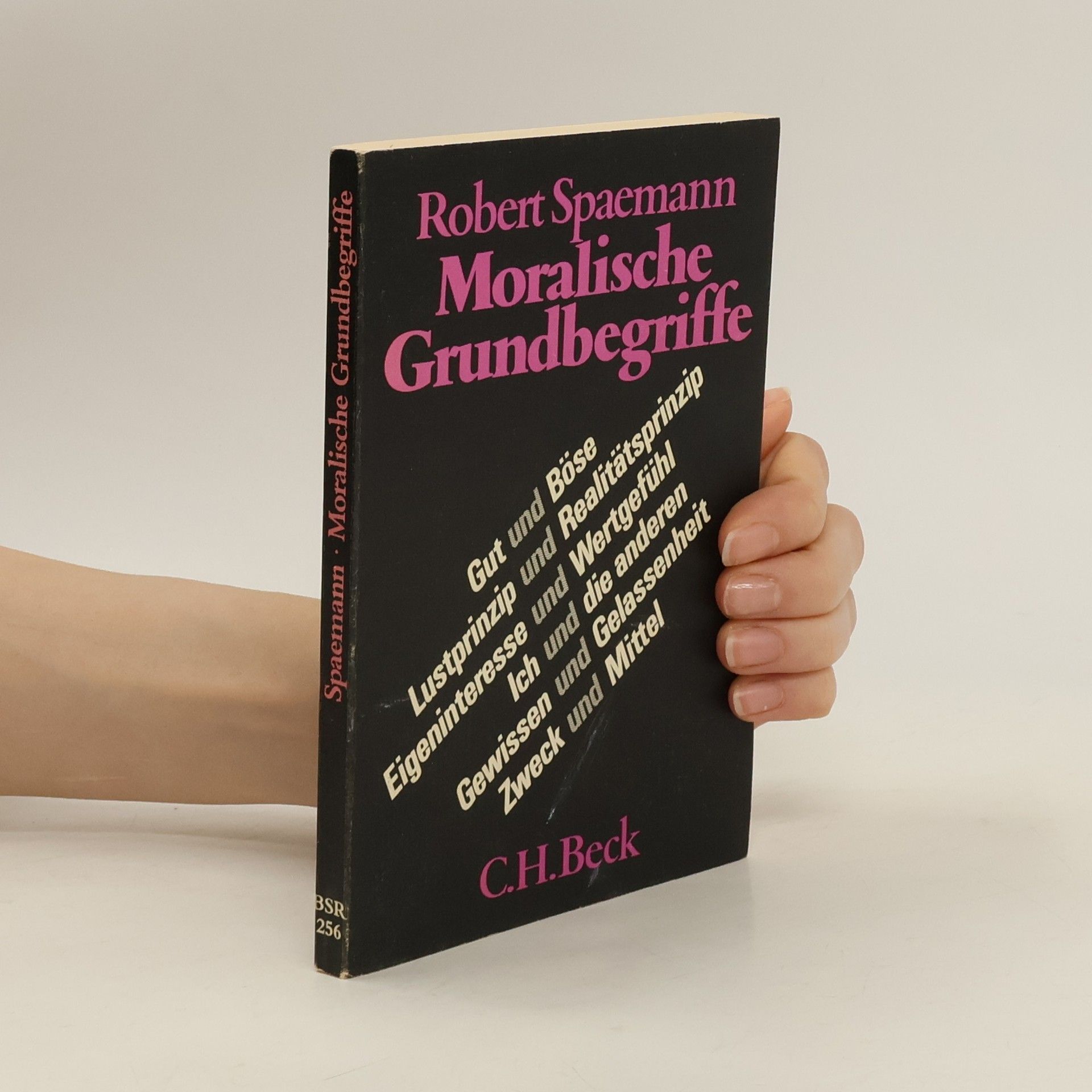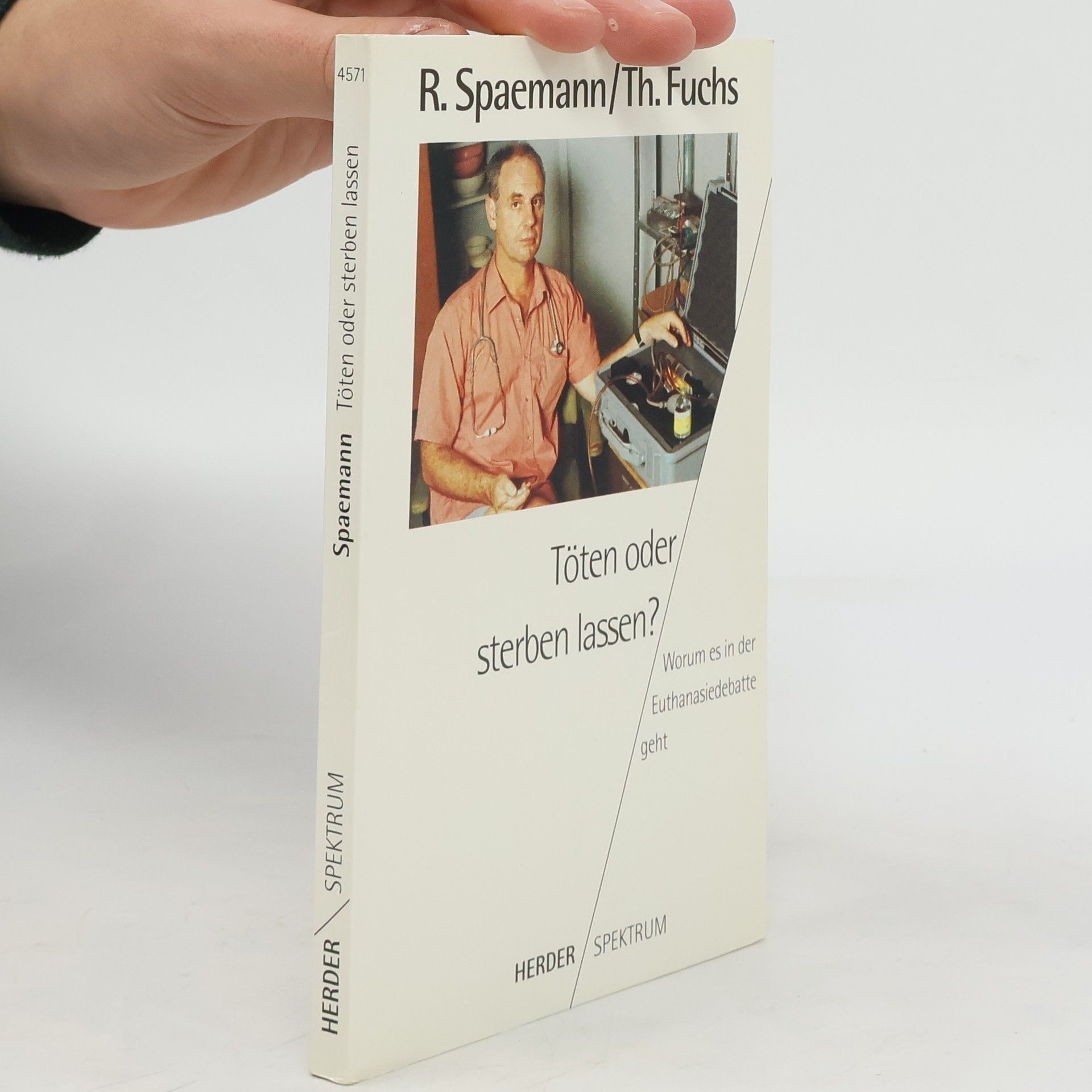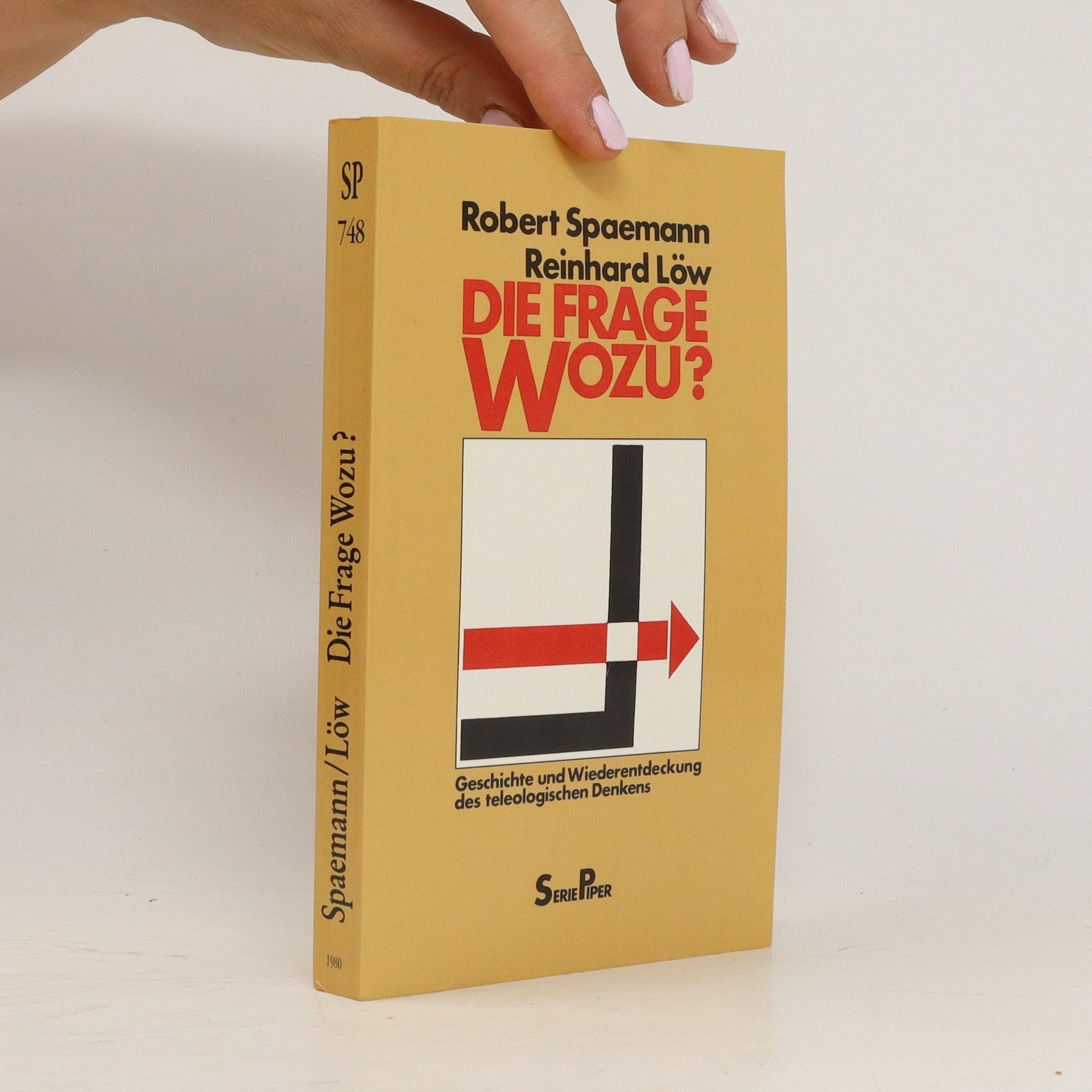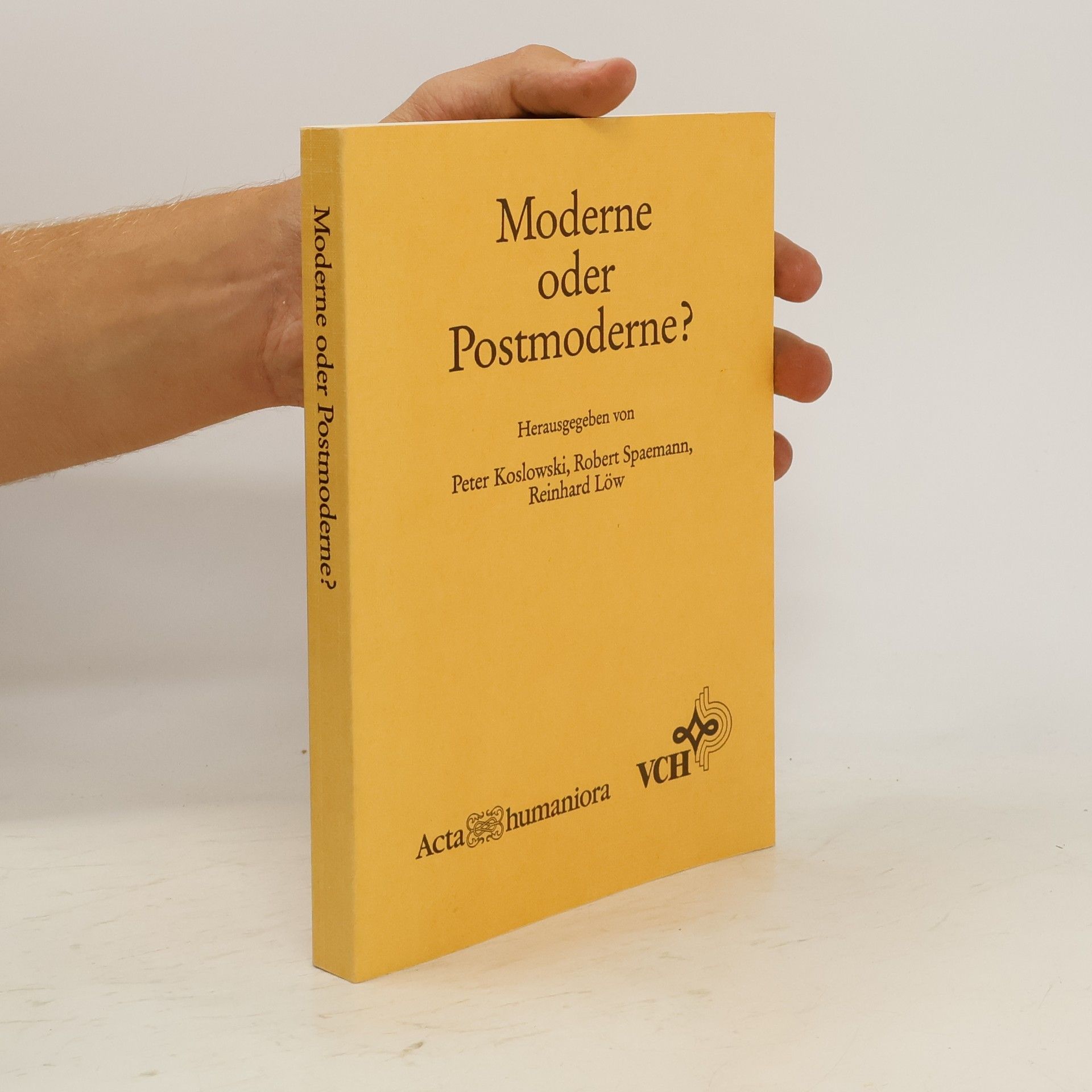Moderne oder Post-Moderne? Zur Signatur des gegenwärtigen Zeitalters
- 304 pages
- 11 hours of reading
Robert Spaemann was an influential German philosopher known for his profound explorations of ethics, anthropology, and political philosophy. His writings frequently delved into the fundamental questions of human existence, the nature of consciousness, and the moral underpinnings of society. Spaemann sought to bridge traditional philosophical thought with contemporary issues, offering readers a considered perspective on the complexities of the world. His clear and precise style earned recognition, and his work continues to inspire new examinations of philosophical concepts.







El Salterio es el libro clásico de oración de la sinagoga y de la iglesia. Constituye la mayor parte del Libro de las Horas de los monjes cristianos de Oriente y Occidente, así como del Breviario cotidiano de los sacerdotes. Los salmos pertenecen — con independencia de la fe del lector o del cantor— al patrimonio cultural fundamental de Europa. Las «Meditaciones» que aquí presento sobre los primeros 51 salmos son pensamientos de un laico, de un cristiano creyente en la Revelación y de un filósofo creyente en la razón [...] Empecé a escribirlos hace décadas. Algunos de estos textos cayeron en manos de Hans Urs von Balthasar que me sugirió una publicación. No obstante, no quería considerarlo hasta que hubiese con¬cluido mi actividad como profesor de Filosofía. De eso hace ya mucho tiempo. [De la Introducción]
Studien über L. G. A. de Bonald
Philosoph der Restauration und Vater der Soziologie; gläubiger Christ und Ahnherr eines atheistischen Positivismus – diese Ambivalenz kennzeichnet die entscheidende, aber wenig bekannte Rolle des Vicomte de Bonald in der Geschichte der Gesellschaftslehre. Der Begründer des 'Traditionalismus' strebte vor allem die Bewahrung der theologisch-metaphysischen Tradition an, was sich in seiner Sprachphilosophie sowie seiner Theorie der Souveränität und Legitimität widerspiegelt. Dennoch hob Bonald die alte Metaphysik radikaler auf als die atheistischen Materialisten des 18. Jahrhunderts, indem er Philosophie und Religion als Funktionen der Gesellschaft betrachtete. Diese Diskrepanz zwischen Absicht und Wirkung zeigt sich bei diesem oft als erzkonservativ wahrgenommenen Denker. So beriefen sich sowohl Lamennais, der mit der 'christlichen Demokratie' assoziiert wird, als auch Charles Maurras auf Bonald, der aus einer Verbindung von Positivismus und Katholizismus ein totalitäres System ableiten wollte. Charles Péguy erkannte schließlich, dass der moderne intellektuelle Konservatismus einen radikaleren Bruch mit der abendländischen Tradition darstellt als die Französische Revolution und deren geistige Wegbereiter. Ein Wortführer aus einer uns heute ferngerückten Zeit erweist sich durch all diese Tatsachen als überaus aktuell.
Alles reale, in einer Gesellschaft geltende Ethos ist nicht selbstverständlich. Es trägt Spuren von Unwissenheit, Verdrängung, Unterdrückung. Ist es das Ethos der Herrschenden? Ist der Mißbrauch des Wortes "gut" sein häufigster Gebrauch? Die acht Kapitel dieses Buches erörtern ohne terminologischen Aufwand und ohne gelehrte Voraussetzungen einige jener Grundbegriffe, die wir alle täglich verwenden, wenn wir mit uns selbst oder mit anderen über den moralischen Aspekt unserer Handlungen zu Rate gehen. Der Autor nähert sich dabei der "familiären Unterredung", die Platon zur Erörterung ethischer Grundbegriffe empfohlen hat. INHALT: Vorwort 1. Philosophische Ethik oder: Sind Gut und Böse relativ? 2. Erziehung oder: Lustprinzip und Realitätsprinzip 3. Bildung oder: Eigeninteresse und Wertgefühl 4. Gerechtigkeit oder: Ich und die anderen 5. Gesinnung und Verantwortung oder: Heidligt der Zweck die Mittel? 6. Der Einzelne oder: Muß man imm seinem Gewissen folgen? 7. Das Ungedingte oder: Was macht eine Handlung gut? 8. Gelassenheit oder: Das Verhalten zu dem, was wir nicht ändern können
Er ist wie Günter Grass, Martin Walser und Joseph Ratzinger 1927 geboren, Zeitgenosse von Habermas und Enzensberger und sein Leben verlief so spannend wie kein zweites seiner Generation. Die Mutter war Tänzerin bei Mary Wigman, sein Vater Kunsthistoriker. Seine Eltern waren links, atheistisch und lebten in der Berliner Bohème der Zwanziger Jahre. 1942, nach dem Tod seiner Mutter, wird der Vater zum katholischen Priester geweiht. 1944 ist Spaemann bei einem Bauer untergetaucht, er ist Deserteur im eigenen Land. Entdeckt man ihn jetzt, wird er sofort erschossen. Heute ist Robert Spaemann der bedeutendste konservative Philosoph im In und Ausland. In einem langen Gespräch mit Stephan Sattler resümiert er sein Leben, ganz unter der Maxime der Suche nach dem, "was in Wahrheit ist". Spaemann ist der bedeutendste konservative Philosoph im In- und Ausland und bekennender Gegner der Nutzung der Atomkraft und der Genmanipulation.
Aus dem Inhalt:NaturNaturtheologie und HandlungDie Aktualität des NaturrechtsPhilosophie als Lehre vom glücklichen LebenDie kontroverse Natur der PhilosophieUnter welchen Umständen kann man von Fortschritt sprechen?Moral und GewaltSein und Gewordensein. Was erklärt die Evolutionstheorie?Funktionale Religionsbegründung und ReligionEnde der Modernität?
Kann man Gott beweisen, wie man eine mathematische Aussage beweist? Aristoteles, Platon und nach ihnen viele andere Philosophen beantworteten diese Frage mit Ja und legten in sich schlüssige Gottesbeweise vor. Die Philosophen der Neuzeit entzogen diesem Denken die Grundlage, und mit Kant und Nietzsche (»Gott ist tot«) klappte die Philosophiegeschichte die Bücher zum Thema »Gottesbeweis« endgültig zu. Voreilig, wie sich nun zeigt. Denn es gibt einen neuen, den letzten Gottesbeweis. Geführt hat ihn Robert Spaemann – mit zwingender Logik und absolut »nietzschefest«. Der 80-jährige deutsche Philosoph von Weltrang gilt als einer der kreativsten Denker der jüngeren Philosophiegeschichte. Rolf Schönberger, Ordinarius für mittelalterliche Philosophie an der Universität Regensburg, fragt in seinem Kommentar nach den Möglichkeiten und Grenzen von Gottesbeweisen.
Was meinen wir heute, wenn wir »Gott« sagen? Haben wir Grund zu glauben, dass er existiert? Ist er unsere Idee oder sind wir die seine? Religion gilt seit langem als Privatsache, doch Selbstmordattentäter haben uns gelehrt, dass dies ein Irrtum ist. Die Frage, ob Gott solche Taten billigt oder missbilligt, ist von öffentlichem Interesse. Lassen sich Fragen nach der Existenz Gottes und einer möglichen Offenbarung rational erörtern? Und wenn ja, ist es berechtigt, sie unbeachtet zu lassen? Was steht dabei auf dem Spiel? Die Wahrheitsfähigkeit des Menschen – in dieser Antwort stimmt Robert Spaemann mit Nietzsche und Rorty überein, jedoch verteidigt er die Existenz Gottes und die Wahrheitsfähigkeit der menschlichen Vernunft. Wie Wittgenstein sieht Spaemann den Aberglauben der Moderne darin, dass Naturgesetze die Welt erklären, während sie selbst das Erklärungsbedürftigste sind. Seit 50 Jahren greift Spaemann in öffentliche Grundsatz- und Wertedebatten ein, etwa zur atomaren Bewaffnung, dem Kosovokrieg oder der Euthanasiegesetzgebung. Er hinterfragt die »europäischen Werte« in verschiedenen Medien und widmet sich auch der geistigen Situation der Kirchen. Sein Ziel ist es, die Errungenschaften der Moderne gegen eine Tendenz zur Selbstaufhebung zu verteidigen.